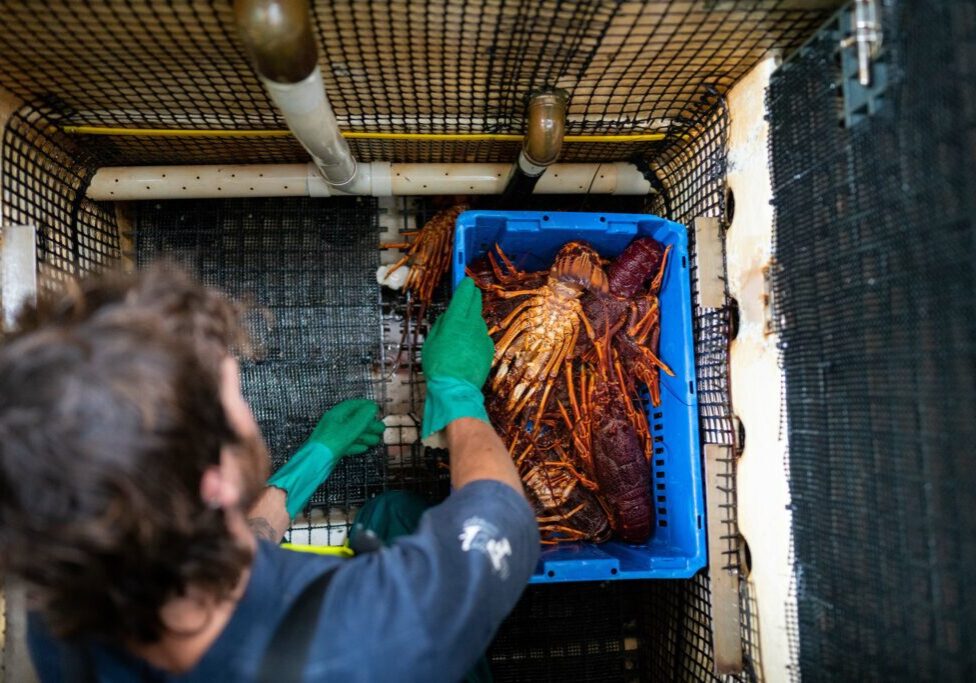Louisiana’s crawfish industry is powered by immigrants, as local crawfish farmers have turned to federal “guest worker” programs to fill jobs in recent years. But the legal immigration status of these workers is fully dependent on their employment, leaving them vulnerable to abuse. The Advocate’s James Finn explains:
In late June of 2019 — a few weeks after the McDonald’s meeting — workers confronted the owners, saying they had been putting in 65-hour weeks and getting paid for 40, a weekly difference of about $256 per worker. Managers responded by threatening to shutter the farm entirely, workers later told the feds. “If we have any issues, there is no secret, I am just going to shut the doors and nobody is going to have a job,” co-owner Gerard Frey said in a meeting with workers, according to a transcribed recording of the discussion.
But as Finn notes, these immigrant workers played a key role in expanding protections in the U.S. immigration system.
The efforts finally bore fruit in January when DHS announced its plan to offer two years of “deferred action” protection to workers tapped as witnesses in workplace abuse investigations. The requests came as federal labor officials probed similar alleged violations involving migrant workers in Texas, Nevada, Georgia and elsewhere. But the Louisiana workers were the first group to win the new protections based on a letter from the National Labor Relations Board. The case was “uniquely compelling” because workers lost status due to exercising their labor rights, said Mary Yanik, a New Orleans-based immigration and labor attorney who represents the workers.
Progress on minimum wage?
All the major candidates for Louisiana governor except two – Attorney General Jeff Landry skipped, and Rep. Richard Nelson was not invited – met Thursday for the first televised debate. The candidates all agreed that public school teachers deserve a permanent pay raise and opposed Covid-19 vaccine mandates. But they differed on the minimum wage and whether to renew a temporary sales tax that has stabilized the state budget. The Louisiana Illuminator’s Greg Larose reports:
(Attorney Hunter) Lundy (no party), (Republican state Treasurer John) Schroder and (former Transportation Secretary Shawn) Wilson (a Democrat) supported an increase in Louisiana’s $7.25 minimum wage, which has gone unchanged since 2009. (Republican state Sen. Sharon) Hewitt offered a “maybe” as she noted she opposed a hike this past legislative session, while (former business lobbyist Stephen) Waguespack (a Republican) offered a flat no. The 0.45% sales tax should come off the books if the state can expand its economy, Waguespack said. Lundy and Wilson support renewing the tax, while Hewitt and Schroder are against it.
Footnote: The Legislature has killed every attempt to establish a state minimum wage, typically along party lines. Schroder and Hewitt’s willingness to consider the idea is a (small) sign that the political stalemate might someday end.
States attract chip manufacturing
While the bipartisan CHIPS and Science Act set aside billions of dollars to boost the U.S. semiconductor industry, there are still concerns that the windfall is not enough to reverse declining production numbers. But as Route Fifty’s Kery Murakami explains, red and blue states alike are stepping up to attract semiconductor manufacturing opportunities.
Two days after President Joe Biden signed the CHIPS Act into law, New York Gov. Kathy Hochul signed the Green CHIPS program. It will provide $10 billion in tax credits to build semiconductor facilities in the state that would create at least 500 jobs each. … In June, Texas Gov. Greg Abbott signed his state’s own CHIPS Act, creating $698 million in grants to bolster the creation of more semiconductor facilities in a state that’s already the nation’s leader in chips manufacturing.
Power of cash transfers to reduce homelessness
Researchers at Foundations for Social Change and the University of British Columbia gave people who had become homeless in the last two years a $7,500 lump sum of cash. Over the next year, they documented how recipients were spending their money and what effect it was having on their lives. The results show the power of cash transfers in preventing homelessness. Vox’s Sigal Samuel reports:
Because they were participating in a randomized controlled trial, their outcomes were compared to those of a control group: 65 homeless people who didn’t receive any cash. Both cash recipients and people in the control group got access to workshops and coaching focused on developing life skills and plans. … The recipients of the cash transfers did not increase spending on drugs, tobacco, and alcohol, but did increase spending on food, clothes, and rent, according to self-reports. What’s more, they moved into stable housing faster and saved enough money to maintain financial security over the year of follow-up.
The study also noted the difference between providing a lump sum or monthly installments.
“The research shows that if you give people a larger sum of cash upfront, it triggers long-term thinking,” as opposed to just keeping people in survival mode, [Foundations for Social Change’s CEO Claire] Williams explained. “You can’t think about maybe registering for a course to advance your life when you don’t have enough money to put food on the table. The big lump sum at the front end gives people a lot more agency.”
Number of the Day
$420 million – Amount of revenue Louisiana’s 0.45% sales tax generates annually. The tax – and the revenue it generates – will expire in 2025. The leading candidates for governor differ on whether the tax should be renewed. (Source: The Advocate)
